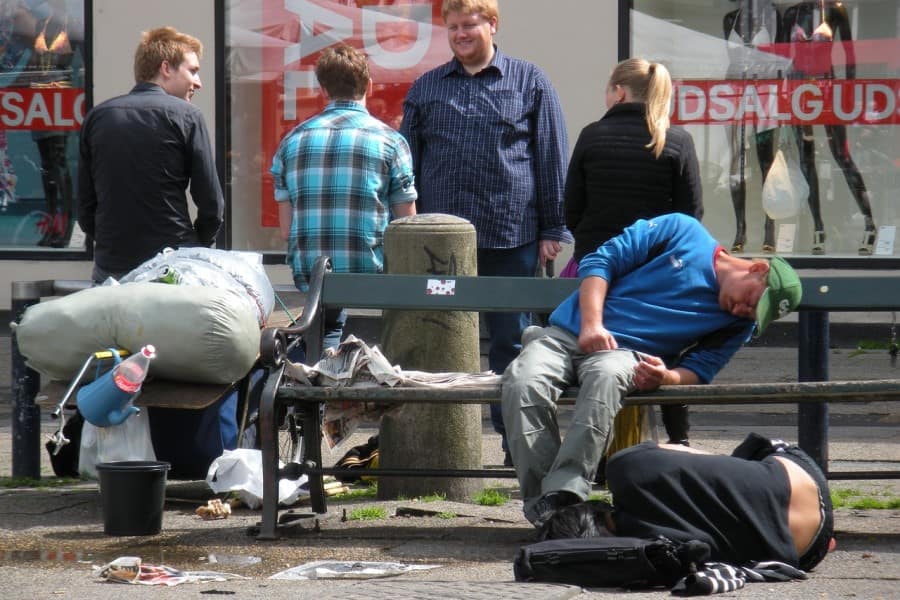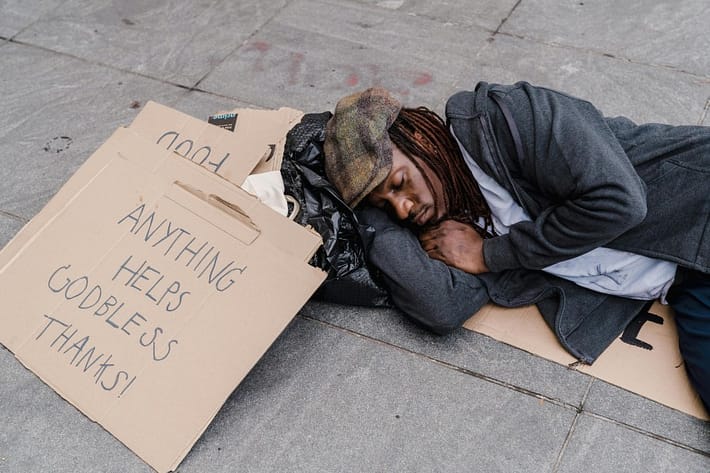10 Causes of Homelessness In America

Homelessness is a multifaceted issue that affects millions of people across the United States. Understanding the causes is essential to addressing and alleviating this crisis. Here are the ten primary causes of homelessness in America, along with state-specific statistics to highlight the scope of the problem.
1. Lack of Affordable Housing
One of the primary causes of homelessness in America is the lack of affordable housing. Rising rents and stagnant wages make it difficult for many Americans to afford a place to live.
- California: The median rent in California is around $1,429 per month, while the state has over 151,000 homeless individuals.
- New York: With median rents at $1,439, New York has approximately 92,000 homeless people.
2. Unemployment and Underemployment
Unemployment and underemployment are significant contributors to homelessness. When people lose their jobs or cannot find full-time employment, they may struggle to pay for housing.
- Michigan: The unemployment rate in Michigan is around 5.5%, with nearly 8,000 homeless individuals.
- Texas: Texas has an unemployment rate of 4.5% and a homeless population of about 25,000.
3. Poverty
Poverty is a root cause of homelessness. When people live below the poverty line, they often cannot afford basic necessities, including housing.
- Mississippi: With a poverty rate of 19.6%, Mississippi has around 1,200 homeless individuals.
- Louisiana: Louisiana’s poverty rate is 19%, with a homeless population of about 3,200.
4. Mental Health Issues
Many homeless individuals suffer from mental health issues, which can make it difficult to maintain employment and housing.
- Oregon: Approximately 35% of the homeless population in Oregon suffers from mental health issues, with the state having about 15,000 homeless individuals.
- Florida: In Florida, around 25% of the homeless population has mental health issues, and the state has over 27,000 homeless people.
5. Substance Abuse
Substance abuse is both a cause and a consequence of homelessness, creating a vicious cycle.
- Nevada: Nearly 30% of the homeless population in Nevada struggles with substance abuse, with over 7,500 homeless individuals in the state.
- Kentucky: In Kentucky, about 20% of homeless people have substance abuse issues, with a total homeless population of around 4,000.
6. Domestic Violence
Domestic violence forces many individuals, particularly women and children, out of their homes and into homelessness.
- North Carolina: Approximately 15% of the homeless population in North Carolina are victims of domestic violence, with around 9,200 homeless individuals in the state.
- Washington: In Washington, about 20% of homeless individuals are domestic violence survivors, with a total homeless population of around 22,000.
7. Lack of Access to Healthcare
Without access to healthcare, many people cannot manage chronic illnesses or disabilities, leading to homelessness.
- Alabama: Around 10% of the homeless population in Alabama lacks access to healthcare, with the state having about 3,200 homeless individuals.
- Arizona: In Arizona, approximately 12% of homeless people lack healthcare access, with a total homeless population of around 10,000.
8. Discrimination
Discrimination based on race, sexual orientation, gender identity, and other factors can lead to higher rates of homelessness in marginalized communities.
- Illinois: African Americans make up about 56% of the homeless population in Illinois, with a total homeless population of around 10,000.
- Georgia: In Georgia, LGBTQ+ individuals represent about 15% of the homeless population, with a total homeless count of around 10,000.
9. Lack of Social Support
A lack of family and community support can leave individuals without a safety net, increasing the risk of homelessness.
- Ohio: Around 18% of the homeless population in Ohio lack social support, with the state having about 10,000 homeless individuals.
- Pennsylvania: In Pennsylvania, about 20% of homeless individuals lack social support, with a total homeless population of around 14,000.
10. Criminal Record
Having a criminal record can make it extremely difficult to find employment and housing, leading to homelessness.
- Indiana: Approximately 12% of the homeless population in Indiana have a criminal record, with a total homeless population of around 5,500.
- Missouri: In Missouri, about 15% of homeless people have a criminal record, with the state having about 6,000 homeless individuals.
Homelessness In America Conclusion
Homelessness in America is a complex issue with multiple causes, including a lack of affordable housing, unemployment, poverty, mental health issues, substance abuse, domestic violence, lack of access to healthcare, discrimination, lack of social support, and having a criminal record. Addressing these causes requires comprehensive strategies and collaborative efforts from government, nonprofit organizations, and communities to create sustainable solutions and reduce homelessness across the nation.
References
- US Census Bureau, California Housing Data
- US Department of Housing and Urban Development, New York Homelessness Statistics
- Michigan State Unemployment Data
- Texas Homeless Network
- Mississippi Poverty Rate Statistics
- Louisiana Department of Health
- Oregon Health Authority
- Florida Coalition for the Homeless
- Nevada Homeless Alliance
- Kentucky Housing Corporation
- North Carolina Coalition to End Homelessness
- Washington State Department of Commerce
- Alabama Department of Public Health
- Arizona Department of Housing
- Illinois Homelessness Statistics
- Georgia Department of Community Affairs
- Ohio Housing Finance Agency
- Pennsylvania Department of Human Services
- Indiana Housing and Community Development Authority
- Missouri Housing Development Commission
Help Us Fight Homelessness In America
At End Poverty Now, our ability to make a difference and help fight homelessness in America hinges on the kindness of donors like you. Your support provides crucial resources, opportunities, and hope to those in need. Whether you choose to make a one-time donation or become a recurring donor, every contribution helps us on our mission to end extreme poverty.
End Poverty Now welcomes cash donations, but we also specialize in accepting donations of hard-to-sell assets such as real estate, aircraft, vehicles, and boats. These contributions help fund projects dedicated to alleviating poverty both domestically and internationally. Please see how you can help end poverty and thank you for considering us in your philanthropic efforts.
End Poverty Now is a 501c3 nonprofit charity accepting cash donations and specializing in donations of hard-to-sell assets such as real estate, aircraft, vehicles, and boats to fund projects aimed at fighting poverty at home and abroad.


